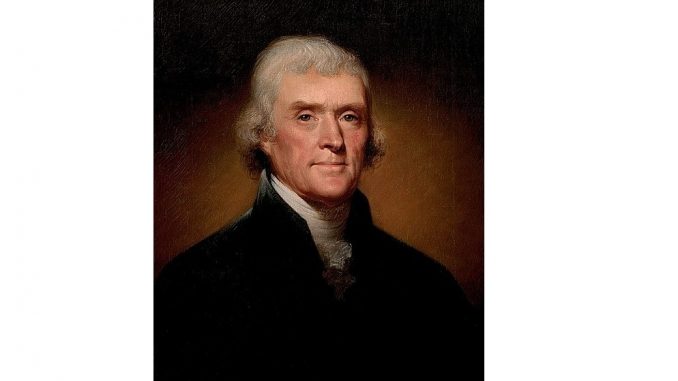
Toward the end of his life, Thomas Jefferson wrote several letters of advice to young people, several of whom had been named after him by admiring parents.
One was a young man named Thomas Jefferson Smith, whose father had written the aged former president in the hope he’d offer his young son some life advice. His words were powerful:
“Your affectionate and excellent father has requested that I would address to you something which might possibly have a favorable influence on the course of life you have to run, and I too, as a namesake, feel an interest in that course … Adore God. Reverence and cherish your parents. Love your neighbor as yourself, and your country more than yourself. Be just. Be true. Murmur not at the ways of Providence. So shall the life into which you have entered, be the portal to one of eternal and ineffable bliss.”
In short: Honor God and your parents, follow the Golden Rule, love your country more than yourself, and don’t complain about the misfortunes of life. This is the path to eternal life.
In the same letter, Jefferson provided the young boy with a more practical set of advice worth pondering. He called it “A Decalogue of Canons for observation in practical life,” playing off the Ten Commandments of the Bible (the “Decalogue”). The rules (with some commentary) were as follows.
1. ‘Never put off till to-morrow what you can do to-day’
No doubt this is a vice many of us struggle with—traditionally, it was associated with things such as sloth (at worst), or procrastination (at best). Jefferson makes clear that whatever it is we know needs to be done, to the extent we can do it today, we should do so. Staying on top of our daily tasks is one of the best ways of avoiding the long-term stress caused by procrastination.
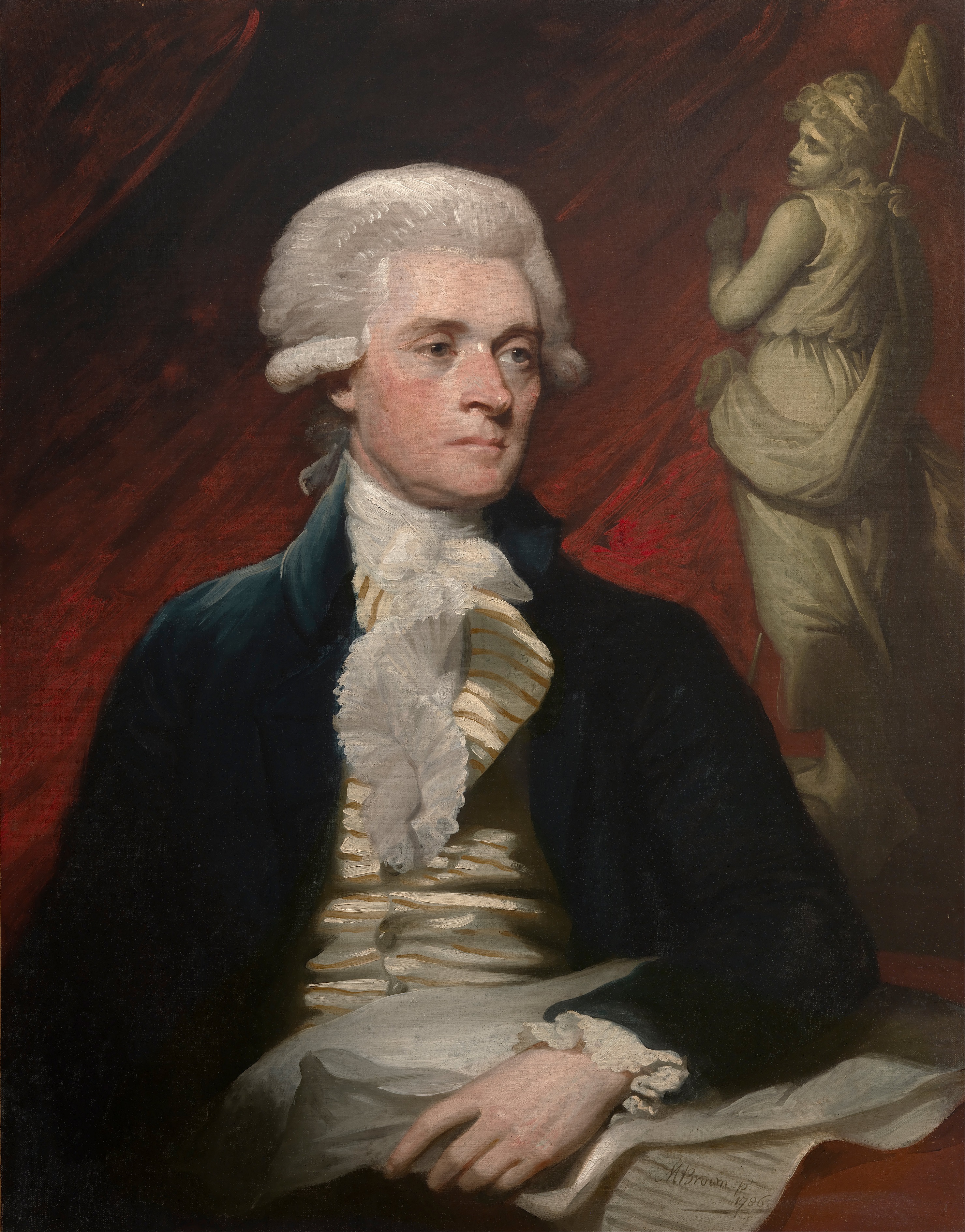
2. ‘Never trouble another for what you can do yourself’
To many modern people, this may sound a bit harsh, as if Jefferson is suggesting we should never reach out for help. But that would be a misreading. In fact, Jefferson suggests we first take stock of what we can do ourselves, do it, and to the extent that falls short, then ask for help. In my own life, and observing the lives of many others, the sense of “earned accomplishment” is crucial to a healthy sense of identity. We’re more capable of tackling the challenges of life after developing a healthy confidence in ourselves—a confidence that’s secure enough to ask for help when needed.
3. ‘Never spend your money before you have it’
My, this is timely! Americans are famously debt-ridden, as is our government. In fact, no entity in the history of the world has accumulated as much debt as the U.S. federal government. Likewise, Americans tend to save at a far lower rate than (for example) Germans, Chinese, and Koreans. Not only does such a habit prevent us from enjoying things we may occasionally want, but it means we have less maneuverability in a crisis. Many of us spend more money than we have to, and do not fully appreciate the extent to which we can moderate our desires, and find great wealth in being content. For those who need to work on this vice, a good first step is Jefferson’s advice: only spend what you already have.

4. ‘Never buy what you do not want, because it is cheap; it will be dear to you’
By “want,” Jefferson doesn’t mean “desire,” but “lack.” So his advice is that if we don’t lack something, we shouldn’t buy more of it just because it’s cheap.
5. ‘Pride costs us more than hunger, thirst and cold’
There’s a famous saying from the Bible, “Pride goes before the fall.” In Scripture, pride preceded the fall of God’s greatest angel, Lucifer (“Light Bearer”), who afterward was known as Satan (“Adversary”). It also preceded the fall of Adam and Eve, which inflicted calamity on the human race. That’s why in Christianity, and many other religious traditions, humility is so important.
Humility is not thinking of ourselves as less than we are, but thinking of ourselves as we are—understanding both our strengths, but our limitations as well. Recognizing we are creatures, not the Creator. Acknowledging that there is much more we don’t know than we do know. Humility opens us up to a world of enlightenment and growth in virtue—pride makes everything in our life depend exclusively on one of the smallest of things: ourselves.
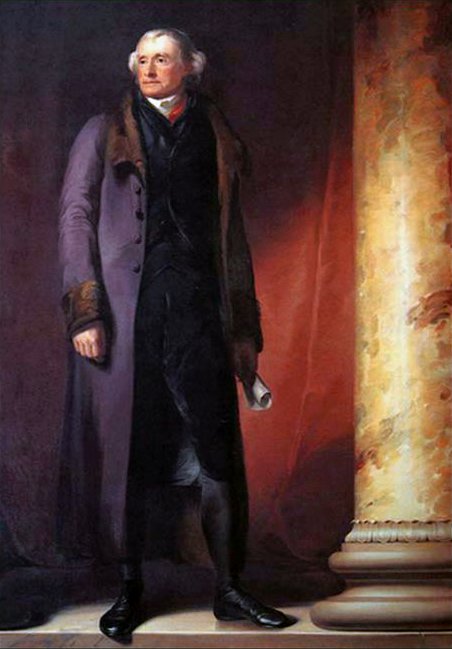
6. ‘We never repent of having eaten too little’
Have you seen America’s waistline lately? Enough said.
7. ‘Nothing is troublesome that we do willingly’
I think this rule goes well with Jefferson’s earlier advice to “Murmur not at the ways of Providence.” Accepting the reality of a situation, no matter how unpleasant, is one of the first steps to dealing with it rationally. If we see every circumstance—especially our trials—as an opportunity for growth, then truly nothing can stop us from growing, and even our troubles become a pathway to excellence.
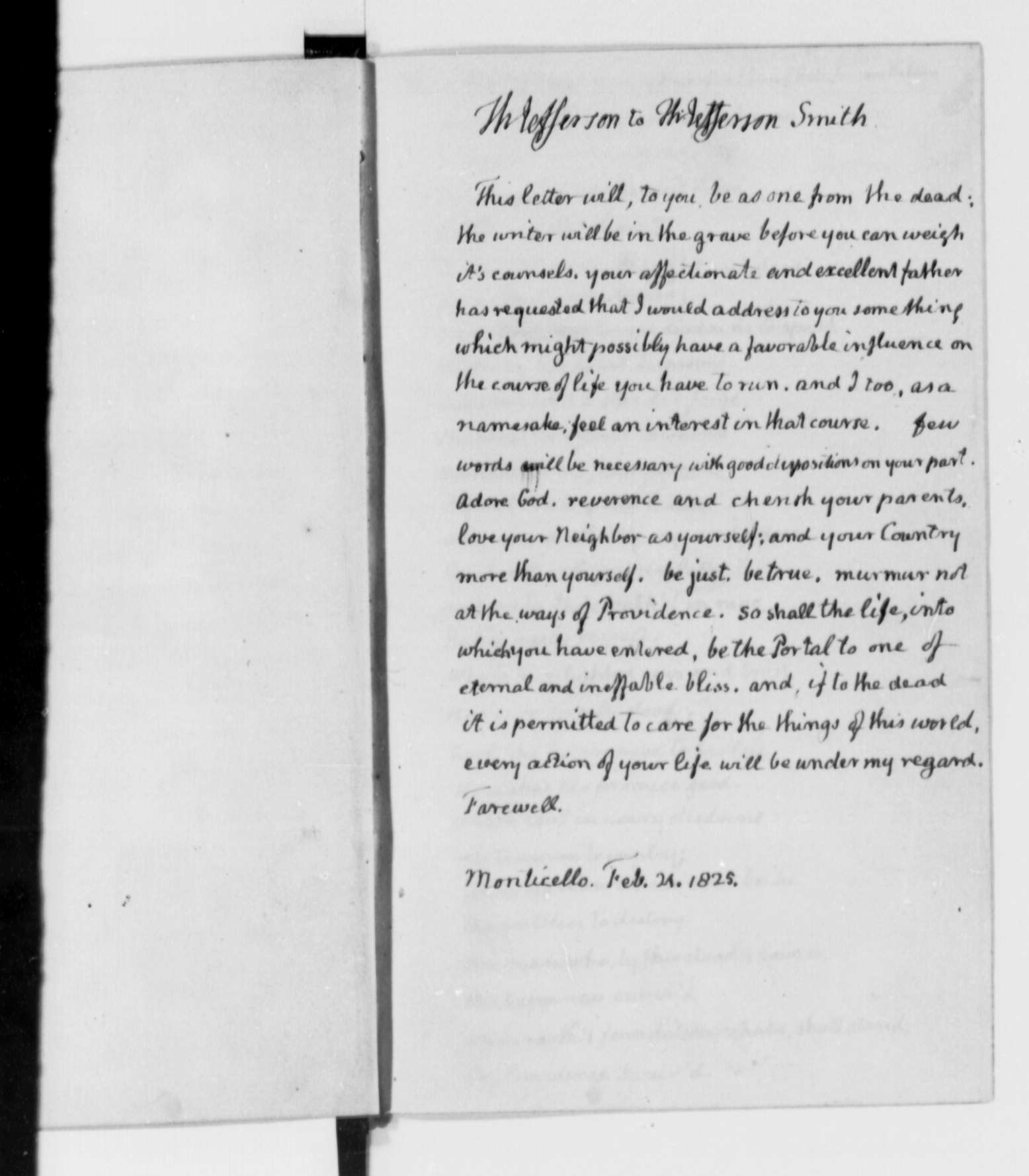
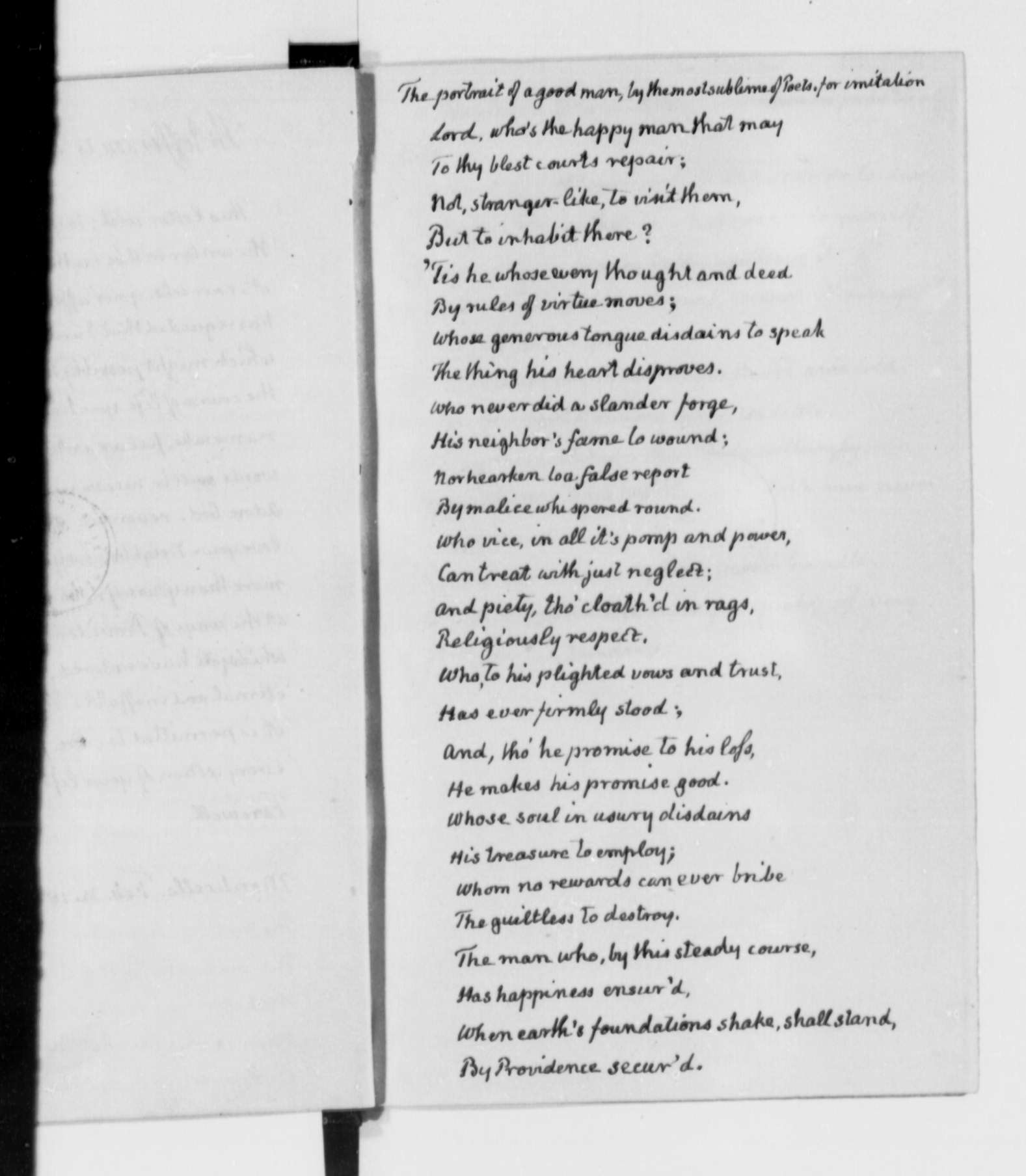
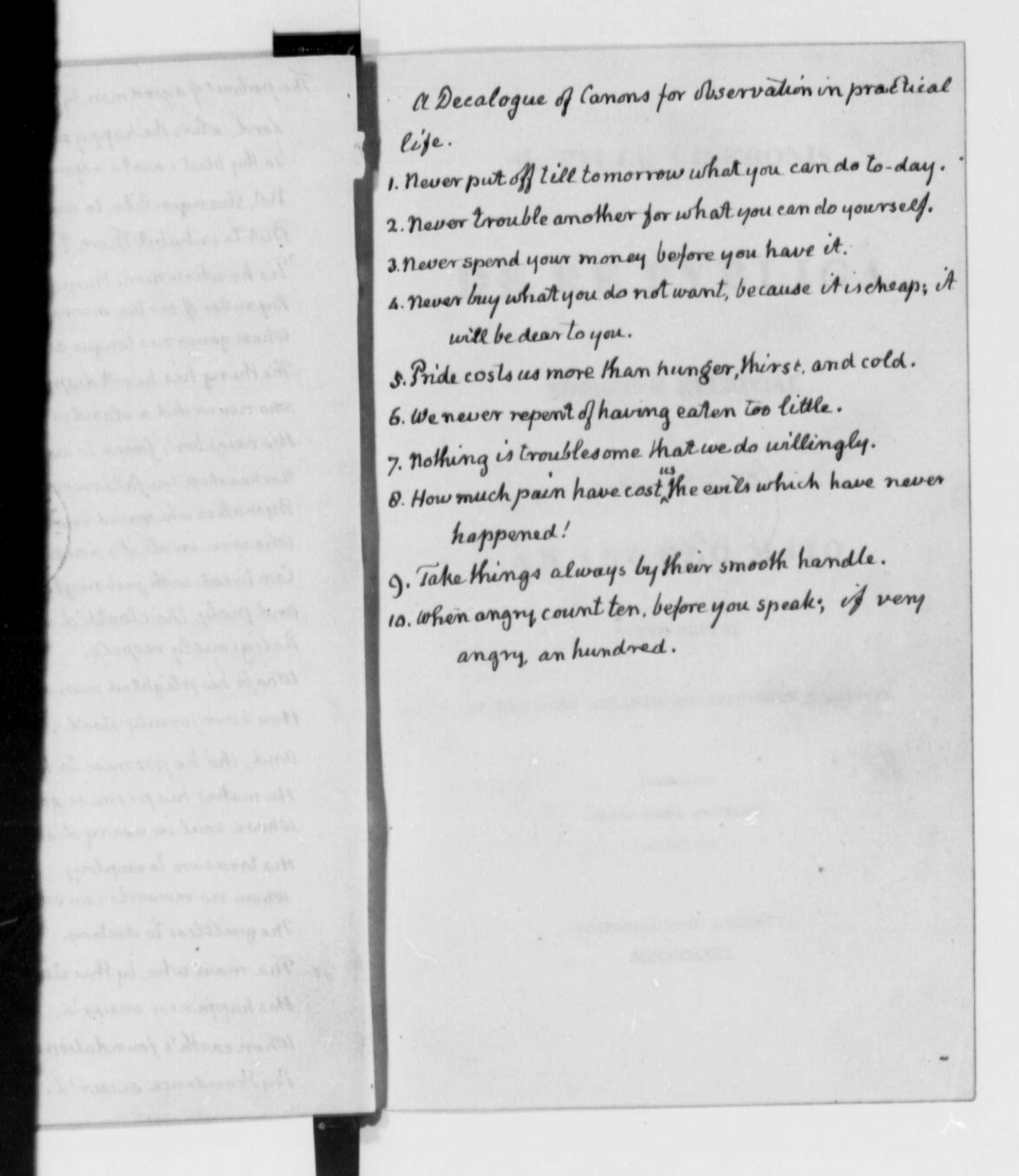
8. ‘How much pain have cost us the evils which have never happened’
This is for the worrywarts out there (myself included). Every so often, it’s good to reflect on all the things we were worried would happen, and didn’t. Or in the alternative, reflect on the bad things that happened, but how we overcame them. Then the truth of Jefferson’s advice will sink in.
9. ‘Take things always by their smooth handle’
For any objective, there are easy and hard ways to achieve it. Choose the easy way—which doesn’t mean no effort. It means minimal wasted effort.
10. ‘When angry, count ten, before you speak; if very angry, a hundred’
All of us know what it feels like to be angry, but then recognizing when we calm down, things are often not as bad as they seem. But even if they are as bad as they seem (or worse), getting our emotions under control is a necessary first step in being able to approach the problem rationally.
Joshua Charles is a former White House speechwriter for Vice President Mike Pence, a No. 1 New York Times bestselling author, a historian, writer/ghostwriter, and public speaker. He’s been a historical adviser for several documentaries and published books on topics ranging from the Founding Fathers, to Israel, to the role of faith in American history, to the impact of the Bible on human civilization. He was the senior editor and concept developer of the “Global Impact Bible,” published by the D.C.-based Museum of the Bible in 2017, and is an affiliated scholar of the Faith and Liberty Discovery Center in Philadelphia. He is a Tikvah and Philos Fellow and has spoken around the country on topics such as history, politics, faith, and worldview. He is a concert pianist and holds a master’s in government and a law degree. Follow him on Twitter @JoshuaTCharles or see JoshuaTCharles.com.





Be the first to comment